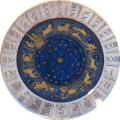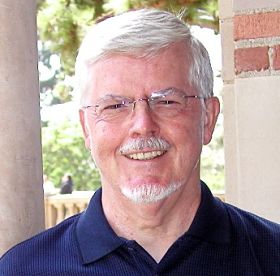367. Brian Copenhaver on Renaissance Magic
Brian Copenhaver joins us to explain how Ficino and other Renaissance philosophers thought about magic.
Themes:
• B.P. Copenhaver, “Scholastic Philosophy and Renaissance Magic in the De vita of Marsilio Ficino,” Renaissance Quarterly 37 (1984), 523-54.
• B.P. Copenhaver, “Renaissance Magic and Neoplatonic Philosophy: Ennead 4.3-5 in Ficino’s De vita coelitus comparanda,” in G.C. Garfagnini (ed.), Marsilio Ficino e il ritorno di Platone (Florence: 1986), vol.2, 351-381.
• B.P. Copenhaver, “Hermes Trismegistus, Proclus and the Question of a Philosophy of Magic in the Renaissance,” in Hermeticism and the Renaissance: Intellectual History and the Occult in Early Modern Europe, ed. I. Merkel and A. Debus (Washington DC: 1988), 79-111.
• B.P. Copenhaver, “Natural Magic, Hermetism and Occultism in Early Modern Science,” in Reappraisals of the Scientific Revolution, ed. D. Lindberg and R. Westman (Cambridge: Cambridge University Press, 1990), 261-301.
• B.P. Copenhaver, “A Tale of Two Fishes: Magical Objects in Natural History from Antiquity through the Scientific Revolution,” Journal of the History of Ideas, 52 (1991), 373-98.
• B.P. Copenhaver, “Did Science Have a Renaissance?” Isis, 83 (1992), 387-407.
• B.P. Copenhaver, “The Power of Magic and the Poverty of Erudition: Magic in the Universal Library,” in Das Buch als magisches und als Repräsentationsobjekt, ed. P. Ganz (Wiesbaden: 1992), 159-79.
• B.P. Copenhaver, “The Occultist Tradition and its Critics in Seventeenth Century Philosophy,” in the Cambridge History of Seventeenth Century Philosophy, ed. M. Ayers and D. Garber (Cambridge: 1998), pp. 454-512.
• B.P. Copenhaver, “The Secret of Pico’s Oration: Cabala and Renaissance Philosophy,” Midwest Studies in Philosophy, 26 (2002), 56-81.
• B.P. Copenhaver, “How To Do Magic, And Why: Philosophical Prescriptions,” The Cambridge Companion to Renaissance Philosophy, ed. James Hankins (Cambridge: 2007), pp. 137-70.
• B.P. Copenhaver, Magic in Western Culture: from Antiquity to the Enlightenment (Cambridge: 2015).







Comments
Tentative list of episodes for Reformation Philosophy?
When you will be uploading the list of episodes to come regarding Reformation Philosophy >?
In reply to Tentative list of episodes for Reformation Philosophy? by dukeofethereal
List for the Reformation
Yes indeed, and soon - I have the list pretty much set but it is a bit messy so I need to clean it up first, plus make a few last (tentative) decisions. As a teaser here is what I am expecting to do after the Italian Renaissance and before the summer break in August:
371 Introduction to the Reformation [Apr 25]
372 The Printing Press [May 9]
373 Northern Humanism [May 23]
374 Nicholas of Cusa (d.1464) [June 6]
375 An interview on Nicholas of Cusa (maybe) [June 20]
376 Erasmus [July 4]
377 Northern Scholasticism [July 18]
378 Luther
The whole thing is going to be enormous, with a dozen or more episodes each on Northern Europe (= Germany, Switzerland, and the Low Countries), France, Britain, and Southern Europe (= mostly Iberian, some Italian).
In reply to List for the Reformation by Peter Adamson
The longer, the better.. And…
The longer, the better..
And I cross my fingers so that no episodes will be cancelled..
kudos
amazing episode - i shall be purchasing his book in the future. P.S. something you may have since fixed - look up the pronunciation of Girolamo ..not giro-lahmo... :)
In reply to kudos by Silvia
"Girolamo"
Yes, thanks, someone corrected me on that and I got it right for the Cardano episode!
Galen on reason
I really enjoyed this episode! I am intrigued by what was mentioned about Galen’s association of humoralism with reason. Do you have the citation for that by any chance?
In reply to Galen on reason by Aviva
Galen
Can you remind me exactly what was said? I don't have transcripts for the interviews so it's hard to check. But maybe you mean the ancient "rationalist" school of doctors? We covered that in episode 75 and you can check out the further reading there.
Add new comment